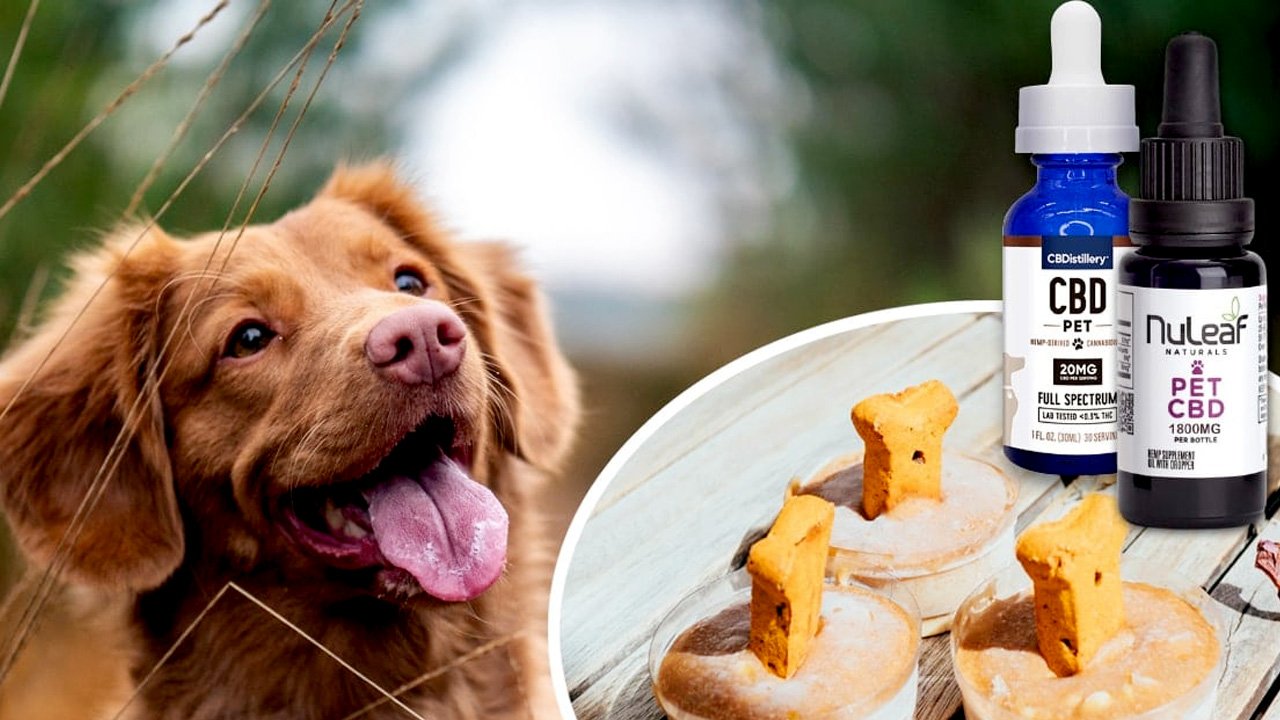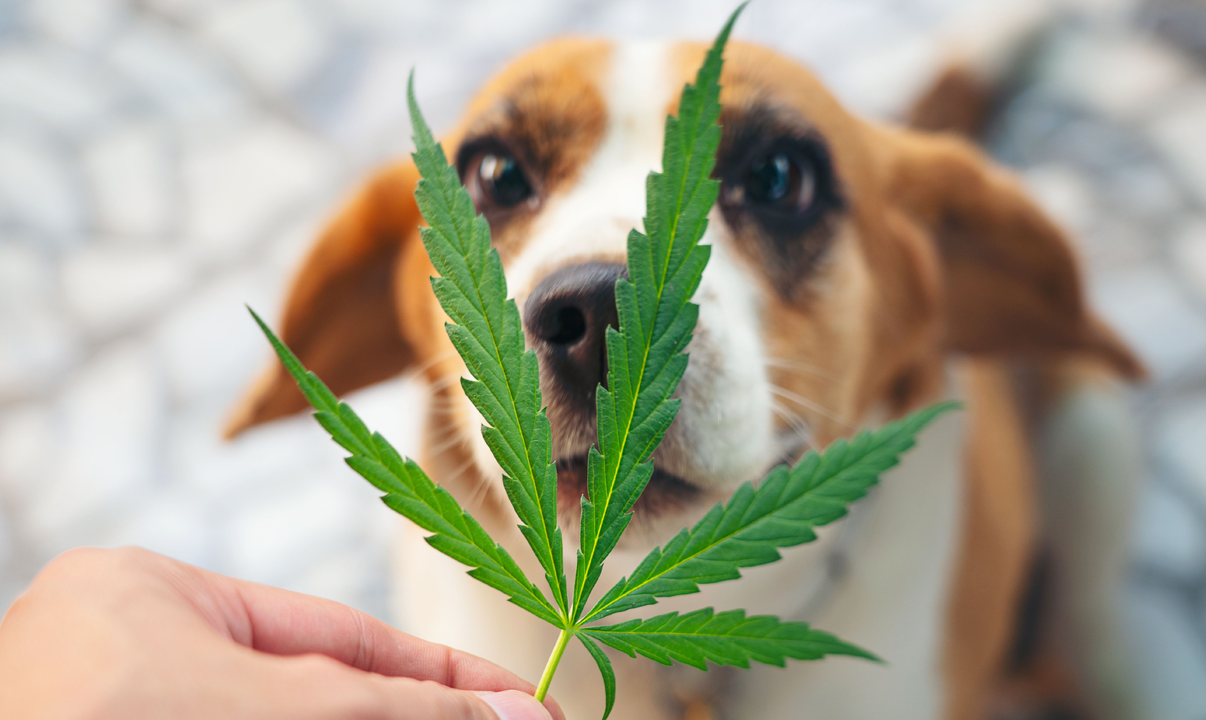CBD for Pets: What You Need To Know

CBD for pets, The popularity of cannabidiol (CBD) has surged, with many people turning to this natural compound for various health concerns. CBD, a non-psychoactive component derived from the cannabis plant, has gained significant traction in the realm of human health and wellness. Interestingly, this versatile compound has also piqued the interest of pet owners, who are seeking alternative solutions to improve the well-being of their furry companions. In this article, we will explore the potential benefits of CBD for pets and delve into how it may positively impact their overall health and quality of life.
Explore the Contents
- 1 What is CBD?
- 2 The Endocannabinoid System in Pets
- 3 Potential Benefits of CBD for Pets
- 3.1 Pain Management
- 3.2 Anxiety and Stress Reduction
- 3.3 Improved Appetite
- 3.4 Anti-Seizure Effects
- 3.5 Skin and Coat Health
- 3.6 Anti-Inflammatory Properties
- 3.7 Cancer Symptom Management
- 3.8 Neuroprotective Effects
- 3.9 Cardiovascular Health
- 3.10 Anti-Nausea Effects
- 3.11 Antioxidant Properties
- 3.12 Immunomodulatory Effects
- 3.13 Managing Behavioral Issues
- 3.14 Sleep Regulation
- 4 How to Administer CBD to Pets
- 5 Safety Considerations
- 6 Conclusion
- 7 FAQs
What is CBD?
Before we delve into its potential benefits for animals, it’s essential to understand what CBD is. CBD, short for cannabidiol, is one of the numerous chemical compounds found in the cannabis plant. Unlike tetrahydrocannabinol (THC), another well-known compound in cannabis, CBD does not induce a “high” feeling when consumed. This is because CBD does not bind to the same receptors in the brain as THC does, making it non-intoxicating.
The Endocannabinoid System in Pets
To comprehend how CBD interacts with pets, we must first understand the endocannabinoid system (ECS). The ECS is a complex network of receptors and endocannabinoids that exist in the bodies of all vertebrates, including dogs, cats, and other animals. The primary function of the ECS is to maintain homeostasis, or balance, within the body and regulate various physiological processes.
The ECS has two main types of receptors: CB1 and CB2 receptors. CB1 receptors are primarily found in the brain and central nervous system, while CB2 receptors are predominantly present in the immune system and peripheral tissues. When CBD is introduced into a pet’s system, it interacts with these receptors, potentially promoting a sense of balance and overall wellness.
Potential Benefits of CBD for Pets

Now that we have an understanding of CBD and the ECS, let’s explore the potential benefits of CBD for pets:
Pain Management
One of the most well-known potential benefits of CBD for pets is its ability to manage pain. Just like humans, pets can suffer from various conditions that cause discomfort, such as arthritis, joint pain, and injuries. CBD’s potential anti-inflammatory properties may offer relief from pain and inflammation, improving the mobility and comfort of our furry friends.
Anxiety and Stress Reduction
Pets, particularly dogs and cats, can experience anxiety and stress due to various factors, including loud noises, changes in their environment, or separation from their owners. CBD may help alleviate these feelings by interacting with serotonin receptors in the brain, promoting a sense of calm and relaxation.
Improved Appetite
Loss of appetite is a common concern among pet owners, especially when their pets are recovering from illnesses or undergoing medical treatments. CBD may stimulate a pet’s appetite, making it beneficial for pets that need to regain their strength and energy.
Anti-Seizure Effects
Some pets suffer from epilepsy or other seizure disorders, which can significantly impact their quality of life. Preliminary research suggests that CBD’s potential anticonvulsant properties may help reduce the frequency and intensity of seizures in animals, providing relief and comfort to both pets and their owners.
Skin and Coat Health

One of the most well-known potential benefits of CBD for pets is protect their skin by bacteria.CBD’s potential anti-inflammatory properties extend to skincare for pets. It may help alleviate skin conditions, such as itching, redness, and irritation, while also promoting a healthy, shiny coat.
Anti-Inflammatory Properties
In addition to its potential pain-relieving effects, CBD may also help pets with inflammatory conditions, such as allergies and digestive issues.
Cancer Symptom Management
CBD may offer relief to pets suffering from cancer by reducing pain, inflammation, and nausea associated with cancer treatments.
Neuroprotective Effects
Preliminary studies suggest that CBD may have neuroprotective properties, potentially benefiting pets with neurodegenerative diseases or conditions.
Cardiovascular Health
CBD’s potential vasorelaxant effects may support cardiovascular health in pets.
Anti-Nausea Effects

Pets experiencing nausea or vomiting may find relief from CBD, making it easier for them to eat and maintain their nutrition.
Antioxidant Properties
CBD’s potential antioxidant properties may help combat free radicals and oxidative stress, promoting overall wellness in pets.
Immunomodulatory Effects
CBD may support a healthy immune system and help pets fight off infections and illnesses.
Managing Behavioral Issues
CBD may help manage certain behavioral issues in pets, such as aggression and excessive barking.
Sleep Regulation
CBD’s calming effects may promote better sleep and relaxation in pets.
How to Administer CBD to Pets
Now that we are aware of the potential benefits of CBD for pets, the next crucial step is to learn how to administer it to them safely and effectively. Here are some common methods of administering CBD to pets:
CBD Oil
CBD oil is a popular choice for pet owners because it allows for easy customization of dosage. The oil can be administered directly into the pet’s mouth or mixed with their food or treats.

CBD Treats
CBD-infused treats are a convenient and enjoyable way to give pets their daily dose of CBD. They often come in different flavors to cater to varying tastes.
CBD Topicals
For pets with localized issues, such as skin conditions or joint pain, CBD-infused topical creams or balms can be applied directly to the affected area.
CBD Capsules
Some pet owners prefer CBD capsules, which can be given to pets like any other medication or supplement.
CBD Tinctures
Similar to CBD oil, CBD tinctures can be easily administered by mixing them with pet food or directly into their mouth.
Safety Considerations
While CBD holds promise as a natural remedy for pets, safety should always be a priority. Here are some essential safety considerations for using CBD with pets:
Consult with a Veterinarian
Before starting any CBD regimen for pets, it is essential to consult with a veterinarian. They can provide valuable insights based on the pet’s specific health condition, size, and individual needs.
Choose High-Quality CBD Products
Ensure that the CBD products you choose for your pets are specifically formulated for animals and derived from reputable sources. Look for products with third-party lab testing to verify their quality and purity.
Start with a Low Dosage
Begin with a low dosage of CBD and observe how your pet responds to it. Slowly increase the dosage as needed, monitoring for any adverse reactions.
Monitor for Side Effects
While CBD is generally well-tolerated in pets, some may experience mild side effects, such as drowsiness or changes in appetite. If any adverse reactions occur, discontinue use and seek veterinary advice.
Read More: CBD and Pet Behavior: Calming Anxiety and Promoting Relaxation
Avoid THC-containing Products

Ensure that the CBD products you use for your pets are free from THC, as this compound can be toxic to animals and may induce unwanted psychoactive effects.
Conclusion
In conclusion, CBD has not only gained popularity in the realm of human health but also in the veterinary world. As a non-psychoactive compound, CBD interacts with the endocannabinoid system in pets, potentially offering a range of benefits, including pain management, anxiety reduction, improved appetite, and more. However, it is crucial for pet owners to prioritize safety by consulting with a veterinarian, choosing high-quality products, and starting with a low dosage. With careful consideration, CBD may be a natural and effective solution to improve the overall health and well-being of our beloved furry friends.
FAQs
Is CBD safe for pets?
-
- When used correctly and under professional guidance, CBD is generally considered safe for pets. However, individual reactions may vary, so it’s essential to monitor your pet’s response closely.
Can I give my pet CBD treats without consulting a vet?
-
- It’s always best to consult with a veterinarian before introducing any new supplements or treatments to your pet’s regimen, including CBD treats.
How long does it take for CBD to work in pets?
-
- The time it takes for CBD to take effect in pets can vary depending on factors such as the pet’s size, metabolism, and the form of CBD used. In some cases, effects may be noticeable within minutes, while in others, it may take a few days to see improvements.
Can I use CBD topicals on my pet for any skin issue?
-
- While CBD topicals can be helpful for some skin issues, it’s essential to consult with a veterinarian to ensure the right treatment approach for your pet’s specific condition.
Are there any side effects of CBD for pets?
-
- Side effects of CBD for pets are generally mild and rare. They may include drowsiness, dry mouth, or slight changes in appetite. If any adverse reactions occur, discontinue use and seek veterinary advice.





